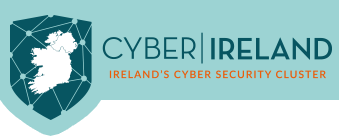- Knowledge of computer networking concepts and protocols, and network security methodologies.
- Knowledge of risk management processes (e.g., methods for assessing and mitigating risk).
- Knowledge of laws, regulations, policies, and ethics as they relate to cybersecurity and privacy.
- Knowledge of cybersecurity and privacy principles.
- Knowledge of cyber threats and vulnerabilities.
- Knowledge of specific operational impacts of cybersecurity lapses.
- Knowledge of industry-standard and organizationally accepted analysis principles and methods.
- Knowledge of information technology (IT) architectural concepts and frameworks.
- Knowledge of Risk Management Framework (RMF) requirements.
- Knowledge of resource management principles and techniques.
- Knowledge of system life cycle management principles, including software security and usability.
- Knowledge of how information needs and collection requirements are translated, tracked, and prioritized across the extended enterprise.
- Knowledge of Supply Chain Risk Management Practices (NIST SP 800-161)
- Knowledge of import/export control regulations and responsible agencies for the purposes of reducing supply chain risk.
- Knowledge of supply chain risk management standards, processes, and practices.
- Knowledge of risk/threat assessment.
- Knowledge of information technology (IT) supply chain security and supply chain risk management policies, requirements, and procedures.
- Knowledge of organizational process improvement concepts and process maturity models (e.g., Capability Maturity Model Integration (CMMI) for Development, CMMI for Services, and CMMI for Acquisitions).
- Knowledge of service management concepts for networks and related standards (e.g., Information Technology Infrastructure Library, current version [ITIL]).
- Knowledge of how to leverage research and development centers, think tanks, academic research, and industry systems.
- Knowledge of information technology (IT) acquisition/procurement requirements.
- Knowledge of the acquisition/procurement life cycle process.
IT Program Auditor
Conducts evaluations of an IT program or its individual components to determine compliance with published standards.
- Skill in identifying measures or indicators of system performance and the actions needed to improve or correct performance, relative to the goals of the system.
- Skill in conducting audits or reviews of technical systems.
- Skill to translate, track, and prioritize information needs and intelligence collection requirements across the extended enterprise.
- Ability to ensure security practices are followed throughout the acquisition process.
- Develop methods to monitor and measure risk, compliance, and assurance efforts.
- Provide ongoing optimization and problem-solving support.
- Provide recommendations for possible improvements and upgrades.
- Review or conduct audits of information technology (IT) programs and projects.
- Evaluate the effectiveness of procurement function in addressing information security requirements and supply chain risks through procurement activities and recommend improvements.
- Review service performance reports identifying any significant issues and variances, initiating, where necessary, corrective actions and ensuring that all outstanding issues are followed up.
- Conduct import/export reviews for acquiring systems and software.
- Ensure that supply chain, system, network, performance, and cybersecurity requirements are included in contract language and delivered.
